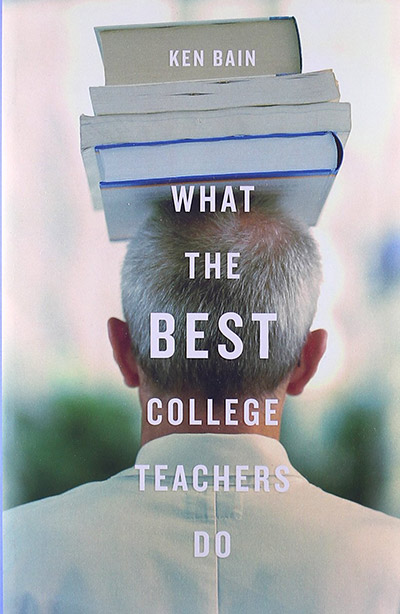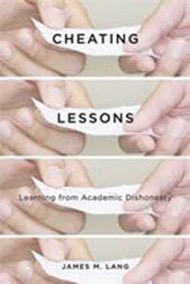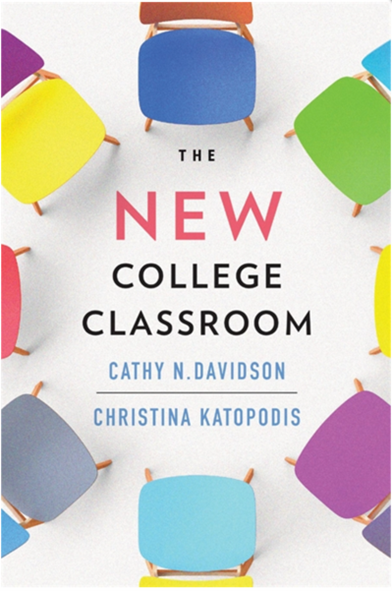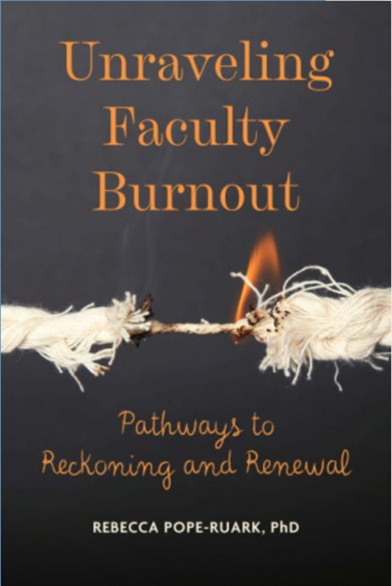Learning Through Inquiry
The everyday work of a scholar involves posing questions that matter in your discipline. Your relentless curiosity is part of the love for your field that got you to where you are today. If you can help your students to see their learning this way, too—as a process of asking good questions and working toward answers—you can ignite their curiosity and guide them to deeper learning.
In What the Best College Teachers Do, Ken Bain says, “Some cognitive scientists think that questions are so important that we cannot learn until the right one has been asked.” He explains that “questions help us construct knowledge. They point to holes in our memory structures and are critical for indexing the information that we attain when we develop an answer for that inquiry.” The desire to close a gap in our knowledge, or solve a mystery, focuses our attention and helps us remember what we discover.
This means that questions are a great way to organize a course: What kinds of questions should students work to answer by the end of the day, the week, the semester? What kinds of questions should they learn to pose themselves?
In Engaging Ideas, John Bean explains, “As students move from discipline to discipline, they need to learn the kinds of questions scholars in a given discipline typically ask. Novices often don’t know how to distinguish a good question from a naive one.” Engaging Ideas is full of strategies and examples for helping students ask good questions. “One teaching approach is to model question-asking by regularly posing well-framed questions for students to consider through exploratory writing, small group discussions, or class debates. Another strategy is to help students see how points in a lecture are connected to underlying questions.” For more ideas, you can explore Bean’s question templates for the sciences, social sciences, and humanities.
Here are a few more ways to harness the power of questions in your classes:
Get students’ attention from the onset. Students can walk into our classrooms physically but not mentally present. A thought-provoking question at the start of class can help them focus on the course. Some colleagues project provocative questions (e.g., How much power does advertising really have on our lives? How do we make a medication that attacks a tumor without killing the patient?) as students enter the classroom. Students can brainstorm preliminary answers (either in writing or verbally in a classroom discussion), and before the class ends, you can return to the questions, allowing students to observe how their understanding of the material progressed.
Activate prior knowledge. When they encounter new ideas, students can only understand them in terms of what they already know. By revisiting what they learned in the previous session, or other prior knowledge they bring to the course, they can strengthen their foundations, and you can get a clearer idea of what you can build on. So instead of launching into a presentation on Freud, for example, you’ll get more mileage by starting with inquiry: What do you know about Freud already? What have you heard others say about Freud? What did you learn about him and his theories in another class?
Train students to ask their own questions. We often do too much of this intellectual work for our students. As Bean explained, to guide students into a discipline, we must give them opportunities to practice formulating their own inquiries and seeking information they could use to construct answers. This work helps them understand the value and the process of doing research, and developing their own questions enhances their sense of ownership in their learning process.
Upcoming
Interpreting and Responding to Student Evaluations
Thursday, January 26 | 2:00-3:30 p.m. | DIF 432 | Sign up to attend
Student feedback is essential for reflecting on our course designs and teaching practices, but finding out how students responded to us, and to our courses, can be an overwhelming experience. In this interactive workshop, we will share strategies for analyzing and interpreting the data collected at the end of each semester, and help you to make the best use of the feedback students provide in their comments. We’ll also discuss a variety of effective ways to collect feedback from students throughout the semester, so you don’t have to wait until a course is over to adjust it for better results.
Spring Faculty Reading Groups
This semester the Center for the Advancement of Teaching is offering the following faculty reading groups. Each group will meet once a week for three weeks to discuss the books in sections. One group will be held remotely on Zoom. We hope you can join us! Please register here.
What the Best College Teachers Do
 Tuesdays: 1/31, 2/7, 2/14
Tuesdays: 1/31, 2/7, 2/14
2:00–3:30 p.m. on Zoom
E-book, available through FSU’s libraries
Click here to explore the book What the Best College Teachers Do.
Cheating Lessons: Learning from Academic Dishonesty
 Fridays: 2/3, 2/10, 2/17
Fridays: 2/3, 2/10, 2/17
2:00–3:30 p.m. in 432 DIF
Print copy, delivered through interoffice mail
Click here to explore the book Cheating Lessons: Learning from Academic Dishonesty.
Note: This group will be co-facilitated by special guest Joshua Morgan, an academic affairs administrator and former mental health/career counselor who provides leadership, consultation, outreach, and training on academic integrity issues at FSU.
The New College Classroom
~ Closed – This group has reached capacity. ~
 Wednesdays: 2/22, 3/1, 3/8
Wednesdays: 2/22, 3/1, 3/8
2:30–4:00 p.m. in 432 DIF
Print copy, delivered through interoffice mail
Click here to explore the book The New College Classroom.
Unraveling Faculty Burnout: Pathways to Reckoning and Renewal
~ Closed – This group has reached capacity. ~
 Thursdays: 2/23, 3/2, 3/9
Thursdays: 2/23, 3/2, 3/9
2:00–3:30 p.m. in 432 DIF
Print copy, delivered through interoffice mail
Click here to explore the book Unraveling Faculty Burnout: Pathways to Reckoning and Renewal.



